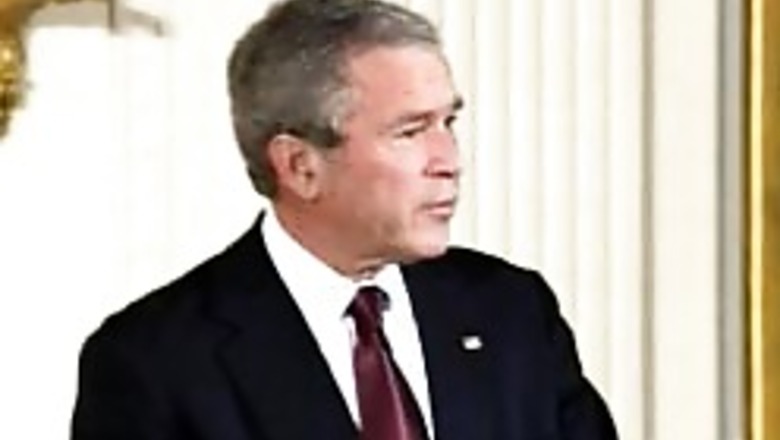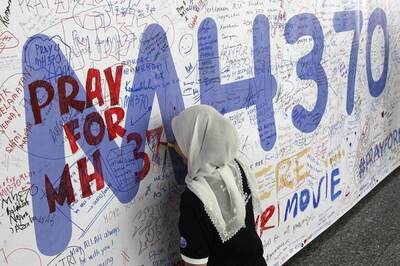
views
New Delhi: US President George W Bush won Britain's backing on Monday for tighter sanctions on Iran over its nuclear programme and secured a British pledge to send more troops to Afghanistan.
The US and UK have warned Iran to accept their offers of partnership or face tough sanctions and international isolation.
The warning was issued by US president George Bush and UK prime minister Gordon Brown at a joint press conference in London.
Brown said Europe would freeze overseas assets of Iran's biggest bank and impose new oil and gas sanctions if it did not go by UN resolutions.
Brown also showed no distance from Bush on the strategy in Iraq and Afghanistan. He also announced that Britain is sending more troops to southern Afghanistan.
After talks with Bush on the last day of the president's farewell tour through Europe, British Prime Minister Gordon Brown said he expected European states to agree to impose some financial sanctions on Tehran and work to approve more.
''So today, Britain will urge Europe and Europe will agree to take further sanctions against Iran,'' he told a news conference.
''First of all we will take action today that will freeze the overseas assets of the biggest bank in Iran, the Bank Melli.''
A British Foreign Office spokesman later clarified that EU states had agreed to a freeze on Bank Melli's assets and were working on technical steps for it to be put in place, but that there were still discussions for more sanctions.
''We're discussing with the U.S. and EU partners a range of additional sanctions, including the oil and gas sector,'' the spokesman said. ''Those discussions are ongoing.''
Iran has ignored calls to stop enriching uranium, a process that can be used to make nuclear weapons, and says its nuclear energy programme is intended only for civilian purposes.
Tehran again ruled out suspending enrichment on Saturday, ignoring political and economic incentives put forward by six world powers including the United States and Britain.
''We will do everything possible to maintain the dialogue, but we are also clear that if Iran continues to ignore united resolutions and continues to ignores our offers of partnership, we have no choice but to intensify sanctions,'' Brown said.
European Union foreign policy chief Javier Solana briefed foreign ministers after visiting Iran at the weekend, when he said he expected a formal reply soon on the incentives package.
However there was no discussion of Iran sanctions at the meeting in Luxembourg today, Solana's spokeswoman said.
A senior member of Iran's parliament, Alaeddin Boroujerdi, has said Tehran is in no hurry to respond.
During Bush's week-long European trip, he secured support from Italian Prime Minister Silvio Berlusconi, French President Nicolas Sarkozy and German Chancellor Angela Merkel for efforts to prevent Iran, the world's fourth-largest oil producer, from obtaining nuclear weapons.
''The free world has an obligation to work together, in concert, to prevent the Iranians from having the know-how to develop a nuclear weapon,'' Bush told reporters after the Brown talks. ''Now's the time to work together to get it done.''
Three U.N. resolutions of sanctions imposed so far on Iran have been relatively limited in scope -- including targeting individuals, some firms with military links and several banks.
Bush has sought to increase pressure on Iran in what is meant to be a farewell tour, although he hinted he may return to Europe before he leaves office in January.
After their meeting, Brown and Bush also highlighted their common views on issues like trade, Darfur and aid to Africa.
On Afghanistan, Britain said it would increase its force by 230 soldiers to 8,030 to bolster the 52,000 NATO-led troops there, which commanders have said are still under-resourced and struggle to hold areas captured from Taliban insurgents.
The two tried to put behind them confusion over British troop withdrawals from Iraq, making clear that conditions on the ground would dictate when British and US forces would leave.
















Comments
0 comment